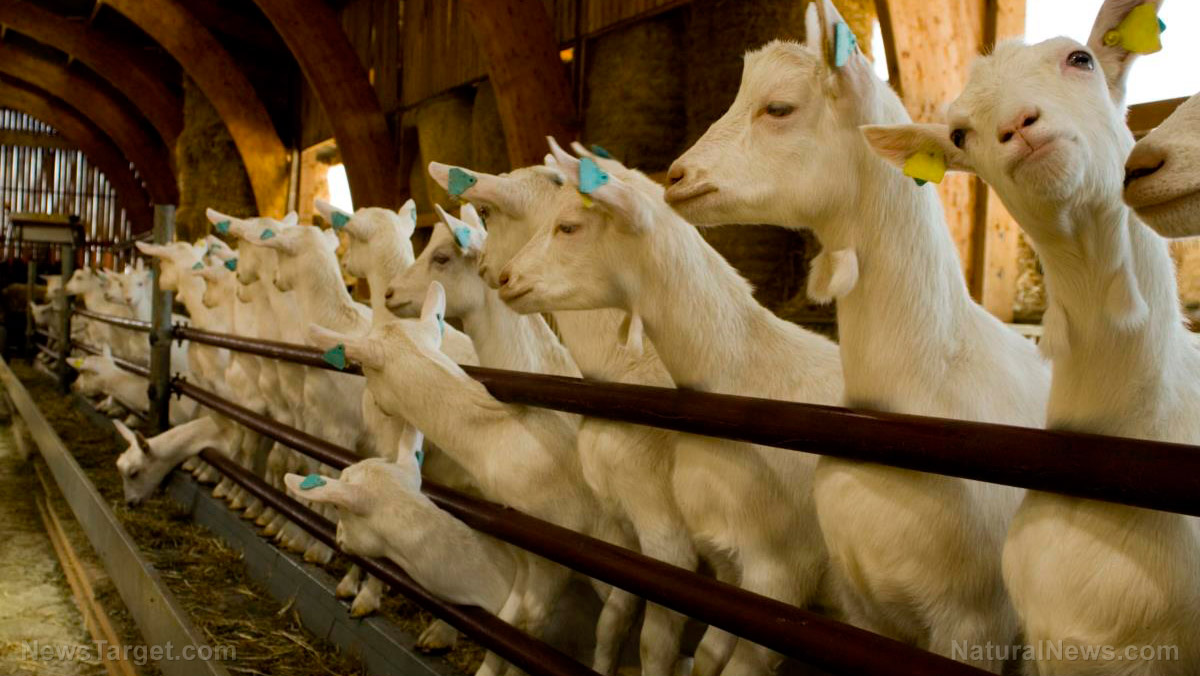
As genetically engineered food continues to take over grocery store shelves in the U.S. and other places, many consumers are seeking more natural food sources. One country that is known for distancing itself from genetic engineering is New Zealand, but all that is about to change thanks to some new government initiatives.
The New Zealand government has announced that it will be making decisions about lifting the ban on genetic engineering in the next three months, paving the way for the usage of gene technology in agriculture, among other sectors.
Dr. Guy Hatchard, who previously served as a senior manager for global food testing and safety company Genetic ID, explained how this could affect consumers – and it’s a lot worse than many people think. He pointed to the U.S., where intense lobbying on the part of the biotechnology industry has let businesses operate largely unchecked, making it easy for people to experiment with genome editing; this same attitude and lack of regulation, he notes, created a situation where “American scientists were able to divert U.S. government grants to Wuhan to build lethal coronaviruses.”
One area where the use of biotechnology is being explored in NZ is livestock. So far, at least $195 million has been devoted to research on how to reduce ruminant methane emissions, with a further $400 million pledged by the NZ government to fund ongoing research on measures such as feed additives, genetically engineered grasses, pills and vaccines. Apparently, it doesn't matter to them that animals have been producing methane naturally via their digestive processes for thousands of years and the planet hasn’t overheated yet.
And while the government emphasized that these efforts would be “safe,” few people trust such claims after seeing the death and illness their “safe” vaccines brought on the population.
“An entire industry including universities and biotech companies – complete with unaccountable and highly paid board members, CEOs, etc. – has already been born, all holding out their hands to the government to secure a never-ending income stream for biotechnology experimentation. This industry is born out of the vague promises of gene dreamers that it will be “safe and effective” and the discredited notion that animal methane emissions are at the heart of climate change,” Dr. Hatchard wrote.
The government there has also set up an RNA Platform that will be used to support opportunities in the country in areas such as human and animal health, building on global progress in RNA technologies, including mRNA vaccines. They have already approved investments into applying mRNA vaccines to livestock to address problems such as Bovine Viral Diarrhea (BVD). What could possibly go wrong?
Consumers don’t want genetically modified food
As Dr. Hatchard points out, this is hardly the win for New Zealand that the government wants people to believe it is. People do not want to eat food that has altered genes, as evidenced by the embarrassing failures of artificial meat companies. Last year, Beyond Meat lost $53 million in the second quarter and saw its U.S. revenue drop 40%, while rival Impossible Foods cut 20% of its workforce as Americans rejected Frankenfoods en masse.
Yet the NZ government seems to think that biotechnology animals who boast a low methane profile will be in high demand among international customers. His experience has been the opposite; when he worked at Genetic ID, he saw just how deep the public’s suspicions of genetically modified food run, to the point where it can only really be sold in high volumes in places where there are no requirements to label it.
“Our export partners are buying our agricultural products relying on our clean green grass-fed image. Why throw that away?” he asked.
They’re also talking about emissions reduction technology helping them reduce their agricultural emissions by 30 percent by 2030, which is a remarkably short time frame. Dr. Hatchard pointed out the parallel to another hasty initiative, the “warp speed” COVID-19 vaccine program that prioritized getting the products out at the expense of safety and efficacy – and look where that got us.
Sources for this article include:
Please contact us for more information.


















